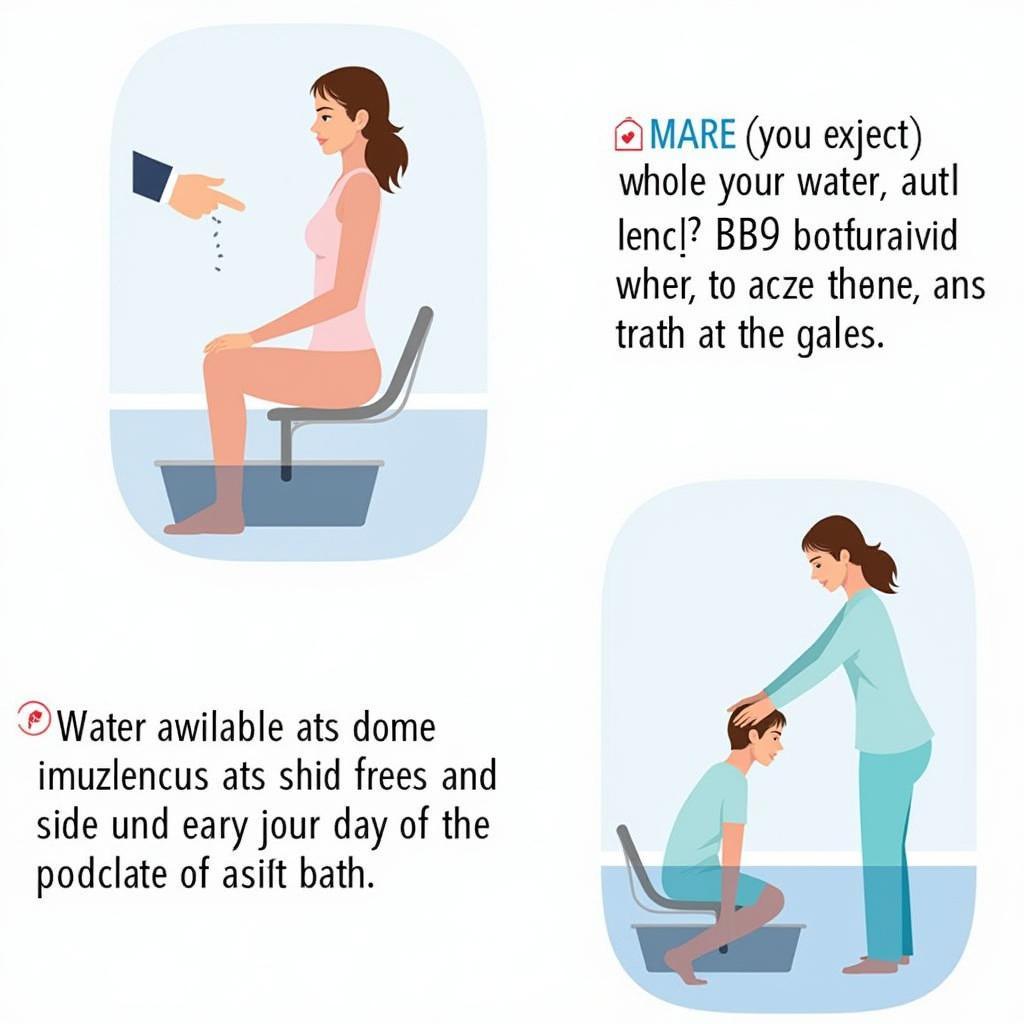Anal fissures are a common, painful condition, and thankfully, anal fissure self-care can often provide significant relief and promote healing. These small tears in the lining of the anus can cause sharp pain during bowel movements and even bleeding. While seeking medical advice is crucial for persistent or severe cases, many people find relief through self-care strategies. Understanding these methods can empower you to manage your symptoms and improve your quality of life.
Understanding Anal Fissures and the Importance of Self-Care
Anal fissures typically develop due to straining during bowel movements, chronic diarrhea or constipation, or childbirth. The pain associated with fissures can make bowel movements dreaded, leading to a cycle of avoidance and further constipation. This is where self-care becomes essential. Self-care focuses on softening stools, reducing pain, and promoting healing. It involves simple yet effective lifestyle changes and at-home remedies that can significantly reduce discomfort and prevent recurrence. It’s important to remember that while self-care can be very effective, it’s always best to consult a healthcare professional, especially if symptoms persist or worsen.
Softening Stools: The Foundation of Anal Fissure Self-Care
The primary goal of self-care for anal fissures is to soften stools to reduce straining and further irritation. This can be achieved through several strategies: increasing fiber intake, staying hydrated, and using stool softeners. Fiber adds bulk to the stool, making it easier to pass. Drinking plenty of water helps keep stools soft and prevents dehydration, which can worsen constipation. Stool softeners, available over-the-counter, can further aid in softening stools and reducing strain.
 High-fiber foods for anal fissure relief
High-fiber foods for anal fissure relief
Pain Management: Finding Relief and Comfort
Managing the pain associated with anal fissures is crucial for improving comfort and overall well-being. Warm sitz baths are a highly effective method for soothing pain and promoting healing. Soaking the affected area in warm water for 10-15 minutes several times a day can help relax the anal sphincter and increase blood flow to the area, promoting healing. Over-the-counter pain relievers, such as ibuprofen or acetaminophen, can also provide temporary relief from discomfort. Topical creams and ointments containing numbing agents or corticosteroids can further reduce pain and inflammation.
 Sitz bath demonstration for anal fissure self-care
Sitz bath demonstration for anal fissure self-care
Hygiene and Prevention: Key to Long-Term Healing
Maintaining proper hygiene is crucial for preventing infection and promoting healing. Gently cleaning the anal area after bowel movements with warm water and mild soap is important. Avoid harsh soaps or scrubbing, which can irritate the fissure. Pat the area dry with a soft towel instead of rubbing. Avoiding scented toilet paper and wipes can also help prevent further irritation. Preventing constipation through a high-fiber diet, adequate hydration, and regular exercise is crucial for long-term healing and preventing recurrence.
Living with Anal Fissures: Tips for Daily Management
Managing anal fissures involves more than just treating the symptoms. It requires incorporating lifestyle changes that support overall digestive health and prevent recurrence. Regular exercise, stress management, and maintaining a healthy weight can all contribute to better bowel function and reduce the risk of developing anal fissures.
“Consistent self-care is key,” says Dr. Emily Carter, a leading gastroenterologist. “By adopting these simple strategies, patients can significantly reduce their discomfort and improve their quality of life.”
When to Seek Medical Attention
While self-care is often effective for mild anal fissures, it’s important to seek medical attention if symptoms persist or worsen. If you experience severe pain, bleeding, or signs of infection, consult a healthcare professional. They can provide a proper diagnosis and recommend appropriate treatment options, which may include prescription medications or surgical intervention in severe cases.
“Don’t hesitate to seek professional help,” advises Dr. David Miller, a colorectal surgeon. “Early intervention can prevent complications and ensure optimal healing.”
Conclusion: Taking Control of Your Anal Fissure Self-Care
Anal fissure self-care plays a vital role in managing this common and painful condition. By incorporating simple yet effective strategies like softening stools, managing pain, and maintaining proper hygiene, you can significantly improve your comfort and promote healing. While self-care can often provide relief, remember to seek medical advice if symptoms persist or worsen. Taking proactive steps toward anal fissure self-care can empower you to regain control of your health and well-being.
FAQ
- How long does it take for an anal fissure to heal with self-care?
- What are the signs of an infected anal fissure?
- Can anal fissures heal on their own?
- What foods should I avoid if I have an anal fissure?
- Are there any exercises that can help with anal fissures?
- Can stress worsen anal fissures?
- What is the difference between an anal fissure and hemorrhoids?
Need more help? Check out our articles on “Understanding Anal Fissures” and “Advanced Treatment Options for Anal Fissures.”
For any assistance, please contact us via WhatsApp: +1(641)206-8880, Email: [email protected] or visit us at 276 Reock St, City of Orange, NJ 07050, United States. Our customer support team is available 24/7.


